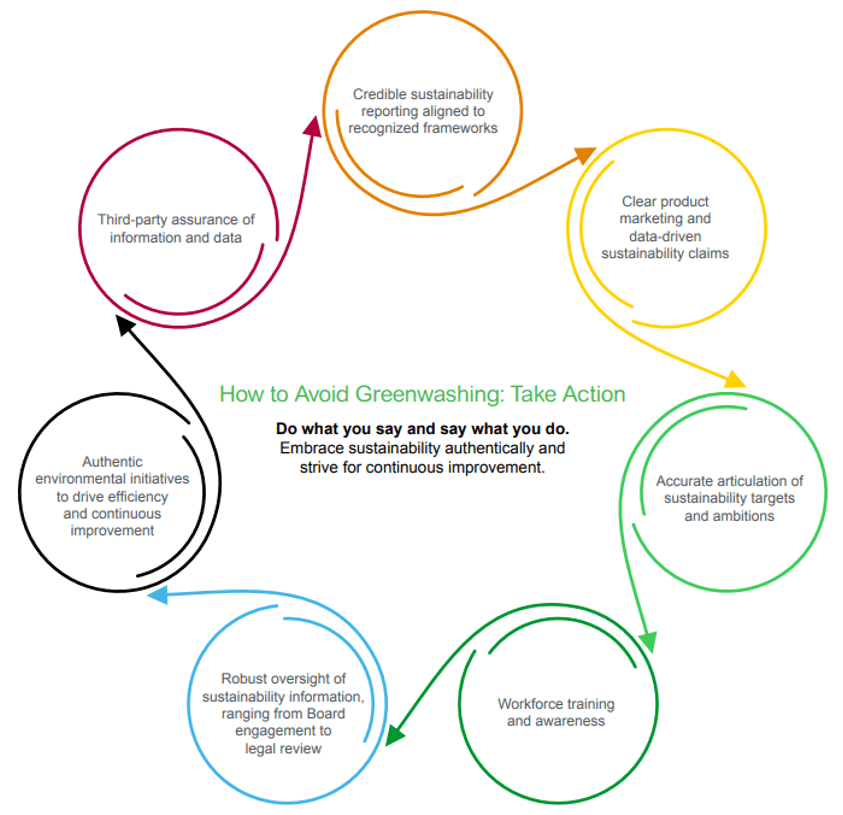Why Greenwashing is Becoming Top of Mind for Many Companies
Welcome to the first blog in our three-part series delving into the critical topic of greenwashing – the practice of overstating or misrepresenting a company’s environmental commitments. In this series, we explore what greenwashing is, define those at risk, discover why this topic matters in strategic communications and risk management, and how organizations can navigate the challenges of developing more authentic sustainability communications, while also avoiding the pitfalls of greenwashing.
 In today's world, sustainability is no longer a choice but a necessity due to growing concerns regarding reporting compliance, investor concern and conscious consumerism. Sustainability teams and even the C-suite have realized the strategic advantage of embracing sustainability to ensure the long-term growth and success of their companies, meeting stakeholder expectations, maintaining brand relevance, and ensuring regulatory compliance. However, simply attaching an "ESG" or "sustainable" label to products and services is not enough. Over the last few years, there has been a level of heightened scrutiny from regulators, the public, and investors, all now closely examining business practices and claims for accuracy and legitimacy.
In today's world, sustainability is no longer a choice but a necessity due to growing concerns regarding reporting compliance, investor concern and conscious consumerism. Sustainability teams and even the C-suite have realized the strategic advantage of embracing sustainability to ensure the long-term growth and success of their companies, meeting stakeholder expectations, maintaining brand relevance, and ensuring regulatory compliance. However, simply attaching an "ESG" or "sustainable" label to products and services is not enough. Over the last few years, there has been a level of heightened scrutiny from regulators, the public, and investors, all now closely examining business practices and claims for accuracy and legitimacy.
Greenwashing’s Roots and Evolution
Greenwashing has become a significant issue that companies face across sectors, as investors, regulators and the public have become more vigilant. Although the term was coined almost four decades ago by environmentalist Jay Westerveld to describe the hotel industry encouraging guests to reuse towels, it is now widely used to refer to exaggerated or misleading environmental claims. Over the years, multiple multi-national organizations have been called out for their greenwashing claims, and only in recent years we have witnessed tighter investigations and binding regulations on this topic.
Regulatory Landscape Surrounding Greenwashing
Sustainability communications can significantly influence a company's trajectory, either propelling it forward or hindering progress. Therefore, it is crucial to understand the different shades and shapes of greenwashing, ranging from slight overstatements to downright fabrications. Companies must be aware of the legal mechanisms and publicly available guidelines to regulate greenwashing, such as voluntary guidelines like ISO 14021:2016, which specify requirements for self-declared environmental claims.
In the US, the Federal Trade Commission's (FTC) Green Guides aim to help marketers avoid making environmental claims that mislead consumers. Recently, the US Securities and Exchange Commission updated its "Names Rule1" to curb greenwashing in investment funds. In the European Union, the Commission adopted a proposal for a Green Claims Directive, which requires companies to substantiate their environmental claims using robust, science-based, and verifiable methods. In the UK, the Competition and Markets Authority introduced the Green Claims Code in 2021. Concurrently in France, the Climate and Resilience Law, Consumer Code, and French Environmental Code prohibit false advertising and misleading consumers. In Germany, the Act against Unfair Competition allows consumers to claim damages, while in Singapore, the Consumer Protection (Fair Trading) Act and the Misrepresentation Act address the issue of greenwashing. In India, greenwashing is classified as an unfair trade practice under the Consumer Protection Act, 2019.
Sustainability Reporting Landscape
As concerns about greenwashing rise, sustainability reporting is rapidly maturing, with regulations like the European Union’s Corporate Sustainability Reporting Directive (CSRD) setting higher expectations for disclosure quality and transparency. Frameworks such as the International Financial Reporting Standards (IFRS), building on the Task Force on Climate-related Financial Disclosures (TCFD) foundation, now demand more detailed and comprehensive reporting. In this shifting landscape, businesses must prioritize accuracy and transparency in their sustainability reporting. Proactively preparing for these changes can ensure compliance while mitigating greenwashing risk.
How Companies are Mitigating Greenwashing: Taking Action
Companies are taking action across multiple departments to mitigate greenwashing risk and ensure responsible communications. Effective efforts require cross-disciplinary expertise – including engagement with legal and compliance, marketing, enterprise risk management and more.
Several actions companies can take today to start mitigating greenwashing risk include:
.

.
Stay tuned for the next part of this series to learn how you can stay on top of your game.
Our Communications Services can help enable businesses to respond to evolving market dynamics and evaluate their needs for increased communication transparency. Click here to learn more.
Disclaimer
The content provided in this blog is for informational purposes only and reflects the status of relevant topics as of the publication date. It is not intended to serve as legal advice or comprehensive guidance, and readers should be aware that regulatory standards may evolve. For specific legal concerns regarding greenwashing mitigation, we recommend consulting a qualified legal professional, in conjunction with expert communication support. The company assumes no liability for decisions made based solely on the content of this blog.